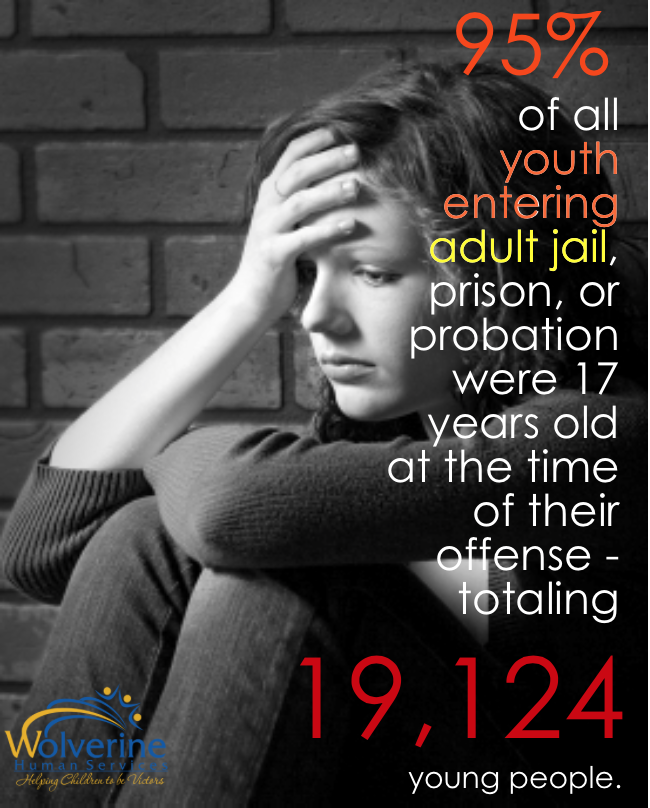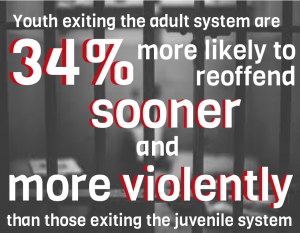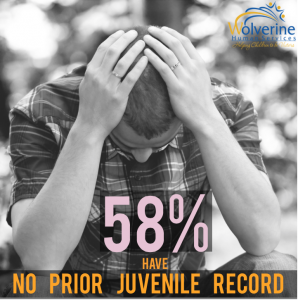Maybe you’re wondering: “Raise the Age” for what? Not the driving age, not drinking for teens, not collecting social security benefits for seniors. Shockingly, we’re debating keeping Michigan’s children separated from convicted adult criminals.
In our state, it is finally time to Raise the Age and keep 17 year-olds from entering our adult criminal justice system.

Following the recommendations from MCCD’s recent “Youth Behind Bars” report, a sweeping package of 21 bipartisan bills, HB 4947 – 4966, have been introduced into the Michigan State House and Senate this week to keep youth out of our adult criminal justice system.
A summary of the Major Findings of this report are definitely alarming:
- Prosecuting youth as adults is harmful to children, threatens public safety, and is expensive.
- Youth are more likely to be physically attacked, sexually assaulted, and attempt suicide than youth in the juvenile justice system.
- Youth incarceration actually increases violent crime. National research found that youth exiting the adult system are 34 percent more likely to reoffend, reoffend sooner, and escalate to more violent offenses than their counterparts in the juvenile justice system.

- Incarcerating youth is expensive. The average cost of housing a prisoner in Michigan is about $34,000 a year, with an average sentence served of 4.3 years. A young person convicted in the adult system can expect to earn 40% less over their lifetime, which translates to a loss of state tax revenue.
- An adult conviction has lifelong consequences, including significant barriers to housing, employment, and education.
- Top Recommendation: Raise the age of juvenile court jurisdiction to 18, allowing 17-year olds to access rehabilitative juvenile services.

- Michigan is one of only 10 states that automatically prosecute 17-year olds as adults.
- In the last ten years, 95% of all the youth entering adult jail, prison, or probation were 17 years old at the time of their offense – totaling 19,124 young people.
- Most 17-year-olds entering the criminal justice system were charged with non-violent offenses.
- Nearly 60% of 17-year-olds were charged with non-violent offenses that did not include a weapon.
- 58% of those entering the system at age 17 had no prior juvenile record.

- Most youth in the system are behind in school and suffer from severe behavioral health needs. Adult probation and prison are not designed to address these needs.
- 48% of 17-year olds entered prison, jail, or adult probation with a 10th grade education level or lower.
- 51% of 17-year-olds entering prison had a substance abuse issue; 24% had alcohol abuse issue; and 23% received mental health treatment prior to entering prison.
Now you may be asking: What will we do with all of these youth?
In our state, we have treatment facilities for juvenile justice youth, both males and females.
At Wolverine Human Services we believe youth should receive rehabilitative treatment with education services in a facility specifically designed to meet the unique needs of young people, and not be placed in a correctional facility with adults.
If you are interested in this issue, please learn more. If you are in support of these bills, please sign the statement of support and contact your local legislators.
We can Raise the Age in Michigan and make a positive difference for our vulnerable youth and our state’s future!
 Judith Fischer Wollack, LCSW, ACSW, LMSW, started working with Michigan’s most vulnerable children and families when she was 16 years old. She is now CEO of Wolverine Human Services and President of the Association of Accredited Child and Family Agencies (AACFA). She actively works with policymakers in Lansing to advocate for the needs of youth and families in the child welfare and juvenile justice systems.
Judith Fischer Wollack, LCSW, ACSW, LMSW, started working with Michigan’s most vulnerable children and families when she was 16 years old. She is now CEO of Wolverine Human Services and President of the Association of Accredited Child and Family Agencies (AACFA). She actively works with policymakers in Lansing to advocate for the needs of youth and families in the child welfare and juvenile justice systems.
